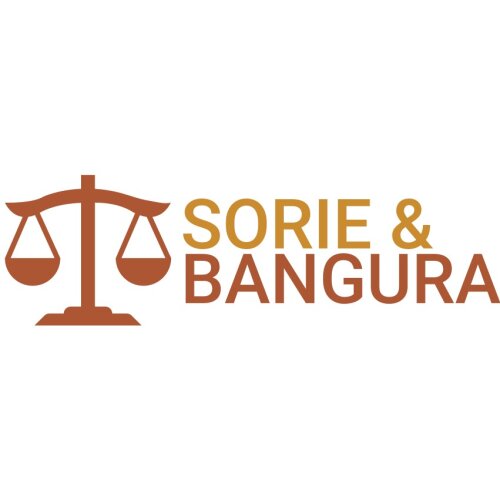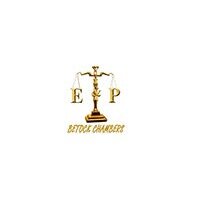Best Mining Law Lawyers in Freetown
Share your needs with us, get contacted by law firms.
Free. Takes 2 min.
List of the best lawyers in Freetown, Sierra Leone
About Mining Law in Freetown, Sierra Leone
Mining Law in Freetown, Sierra Leone is a specialized area of law that governs prospecting, exploration, extraction, processing, and trading of mineral resources within the region. Due to Sierra Leone's abundant deposits of diamonds, gold, rutile, bauxite, and other minerals, mining plays a significant role in the country’s economy. The legal framework aims to regulate mining activities, ensure fair distribution of revenues, promote sustainable practices, and safeguard the environment and local communities. The Mines and Minerals Act of 2009, as amended, is the principal legislation guiding all mining operations in Sierra Leone. It works alongside regulations focused on environmental impact, foreign investment, land rights, and taxation.
Why You May Need a Lawyer
The complexity of mining law means individuals and companies often need specialized legal assistance. Here are some common situations when hiring a lawyer is beneficial:
- Applying for or renewing a mining or exploration license.
- Negotiating joint venture or partnership agreements.
- Handling disputes over land ownership, compensation, or surface rights.
- Understanding rights and obligations under local, regional, and international mining regulations.
- Ensuring compliance with environmental and safety standards.
- Managing investment protection issues or foreign ownership restrictions.
- Representing clients in administrative, civil, or criminal proceedings related to mining activity.
- Addressing community relations or corporate social responsibility obligations.
- Navigating tax, royalty, and revenue-sharing requirements.
- Responding to government enforcement actions or regulatory changes.
Local Laws Overview
Mining operations in Freetown, Sierra Leone, are primarily regulated by the Mines and Minerals Act, 2009, along with supporting regulations. Key local legal elements include:
- Licensing and Permits: Various licenses are required for different mining activities, from reconnaissance and exploration to large-scale or artisanal mining. The National Minerals Agency (NMA) is the main regulatory authority.
- Land Acquisition and Rights: Obtaining access to land for mining often requires negotiations with landowners and local communities, and may involve compensation or resettlement agreements.
- Environmental Regulations: Environmental Impact Assessments (EIA) are mandatory for most mining projects. The Environmental Protection Agency (EPA) oversees compliance with environmental standards to minimize adverse effects.
- Community Development: Mining firms are often required to enter into Community Development Agreements (CDA) with affected communities, detailing how local populations will benefit from mining.
- Royalty and Taxation: Mining operators must pay royalties on extracted minerals and adhere to tax regulations, including corporate and employee taxes.
- Export Controls and Due Diligence: Regulations govern the export of minerals, especially diamonds, under the Kimberley Process to prevent trade in conflict minerals.
- Dispute Resolution: Legal remedies are available through local courts, arbitration, and administrative channels for disagreements involving mining contracts or operations.
Frequently Asked Questions
What types of mining licenses are available in Sierra Leone?
There are several types of licenses, including reconnaissance, exploration, artisanal, small-scale, and large-scale mining licenses. Each has specific requirements and permitted activities.
Who issues mining licenses in Freetown, Sierra Leone?
The National Minerals Agency is the main authority responsible for issuing, renewing, and monitoring mining licenses and permits.
What is the process for obtaining a mining license?
You must submit an application, provide supporting documents, demonstrate financial and technical capability, and often consult with affected landowners or communities. Licensing fees apply, and approvals depend on meeting regulatory standards.
Are foreign investors allowed to own mining rights?
Yes, foreign individuals and companies may be granted mining rights, but must comply with laws on company registration, investment approval, and sometimes local partnership requirements.
What environmental regulations apply to mining projects?
Most mining projects require an Environmental Impact Assessment and ongoing compliance with EPA regulations regarding waste management, water use, rehabilitation, and biodiversity protection.
How are local communities affected by mining activity?
Mining companies are required to consult with communities, address resettlement or land use issues, compensate for disruptions, and usually enter into Community Development Agreements detailing local benefits.
What are the tax and royalty obligations for mining companies?
Mining operators must pay royalties based on the value and type of mineral extracted, along with applicable corporate taxes, employee payroll taxes, and other statutory fees.
How are disputes over mining activity resolved?
Disputes can be handled through local courts, administrative appeals, or arbitration, depending on the nature of the disagreement and the terms of any contracts involved.
Is it possible to transfer or sell a mining license?
Licenses can be transferred or assigned with approval from the NMA, subject to meeting regulatory requirements and notifying affected parties.
What are the penalties for non-compliance with mining laws?
Penalties can include suspension or cancellation of licenses, fines, compensation orders, and in severe cases, criminal prosecution.
Additional Resources
For more information or assistance, the following resources and organizations may be helpful:
- National Minerals Agency (NMA): The main agency responsible for mineral licensing and regulation.
- Ministry of Mines and Mineral Resources (MMMR): Oversees development and regulation of mining policy.
- Environmental Protection Agency (EPA): Regulates environmental compliance for mining projects.
- Sierra Leone Chamber of Mines: An industry group providing information and advocacy for mining companies.
- Legal Aid Board - Sierra Leone: Offers legal support and advice for individuals or communities affected by mining operations.
Next Steps
If you need legal assistance in mining law in Freetown, Sierra Leone, consider the following steps:
- Identify your specific legal issue or area of concern - for example, licensing, land rights, or environmental compliance.
- Gather all relevant documents, contracts, or correspondence related to your mining activity.
- Consult with a qualified lawyer specializing in mining law who is familiar with the current regulations and local practices.
- Contact the relevant government agency (such as the NMA or EPA) for official guidance on your legal obligations or pending applications.
- Participate in community consultations or engagement processes if your issue involves land use or local populations.
- Monitor updates to mining laws or regulatory frameworks that may impact your rights or responsibilities.
Taking timely legal advice and acting in accordance with applicable mining laws helps safeguard your interests and ensures responsible, compliant mining operations in Freetown, Sierra Leone.
Lawzana helps you find the best lawyers and law firms in Freetown through a curated and pre-screened list of qualified legal professionals. Our platform offers rankings and detailed profiles of attorneys and law firms, allowing you to compare based on practice areas, including Mining Law, experience, and client feedback.
Each profile includes a description of the firm's areas of practice, client reviews, team members and partners, year of establishment, spoken languages, office locations, contact information, social media presence, and any published articles or resources. Most firms on our platform speak English and are experienced in both local and international legal matters.
Get a quote from top-rated law firms in Freetown, Sierra Leone — quickly, securely, and without unnecessary hassle.
Disclaimer:
The information provided on this page is for general informational purposes only and does not constitute legal advice. While we strive to ensure the accuracy and relevance of the content, legal information may change over time, and interpretations of the law can vary. You should always consult with a qualified legal professional for advice specific to your situation.
We disclaim all liability for actions taken or not taken based on the content of this page. If you believe any information is incorrect or outdated, please contact us, and we will review and update it where appropriate.












